- Home
- Norman Mailer
The Spooky Art: Thoughts on Writing Page 29
The Spooky Art: Thoughts on Writing Read online
Page 29
Miller has not lacked for adulation. A small but accountable part of the literary world has regarded him as the greatest living American writer for the last four decades, and indeed, as other American writers died, and Hemingway was there no longer, nor Faulkner and Fitzgerald, not Wolfe, not Steinbeck, nor Dos Passos, and Sinclair Lewis long gone, Dreiser dead and Farrell in partial obscurity, who else could one speak of as the great American author? Moreover, Miller provided his considerable qualifications. One had to go back to Melville to find a rhetoric that could prove as noble under full sail. Miller at his best wrote a prose more overpowering than Faulkner’s—the good reader is revolved in a farrago of light with words heavy as velvet, brilliant as gems; eruptions of thought cover the page. You could be in the vortex of one of Turner’s oceanic holocausts, where the sun shines in the very center of the storm. No, there is nothing like Henry Miller when he gets rolling. Men with literary styles as full as Hawthorne’s appear by comparison stripped of their rich language; one has to take English back to Marlowe and Shakespeare before encountering a wealth of imagery equal in intensity.
Yet it can hardly be said that the American Establishment walks around today thinking of Henry Miller as our literary genius or one of the symbols of human wealth in America. Born in 1891, he will be eighty-five by December 26 of 1976, an artist of incomparably larger dimensions than Robert Frost, yet who can conceive of a President inviting him to read from his work on Inauguration Day—no, the irony is that a number of good and intelligent politicians might even have a slight hesitation over whether it is Arthur Miller or Henry Miller being talked about. “Oh yes, Henry Miller,” they might say at last, “the guy who writes the dirty books.”
In the literary world, however, Miller’s reputation also survives in a vacuum. It is not that he lacks influence. It is not even excessive to say that Henry Miller had influenced the style of half the good American poets and writers alive today: Would books as different as Naked Lunch, Portnoy’s Complaint, Fear of Flying, and Why Are We in Vietnam? have been as well received (or as free in language) without the irrigation Henry Miller gave to American prose? Even a writer so removed in purpose from Miller as Saul Bellow shows a debt in Augie March. Miller has had his effect. Thirty years ago, young writers learned to write by reading him along with Hemingway and Faulkner, Wolfe and Fitzgerald. With the exception of Hemingway, he has had perhaps the largest stylistic influence of them all. Yet there is still that critical space. Miller has only been written about in terms of adulation or dismissal. One does not pick up literary reviews with articles entitled “Ernest Hemingway and Henry Miller—Their Paris Years,” or “The Social Worlds of F. Scott Fitzgerald and Henry Miller,” no comments on “The Apocalyptic Vision of Henry Miller and Thomas Wolfe as Reflected in Their Rhetoric.” Nor is there bound to be a work titled “Henry Miller and the Beat Generation” or “Henry Miller and the Revolution of the Sixties.” Young men do not feel they are dying inside because they cannot live the way Henry Miller once lived. Yet no American writer came closer to the crazy bliss of being alone in a strange city with no money in your pocket, not much food in your stomach, and a hard-on beginning to stir, a “personal” hard-on (as one of Miller’s characters nicely describes it).
The paradox therefore persists. It is a wonder. To read Tropic of Cancer today is to take in his dimension. He is a greater writer than one thought. It is one of the few great novels of our American century, a revolution in style and consciousness equal to The Sun Also Rises. You cannot pass through the first twenty pages without knowing that a literary wonder is taking place—nobody has ever written in just this way before, nobody may ever write by this style so well again. A time and a place have come to focus in a writer’s voice. It is like encountering an archaeological relic. Given enough such novels, the history of our century could never be lost: There would be enough points of reference.
It is close therefore to incomprehensible that a man whose literary career has been with us over forty years, an author who wrote one novel that may yet be considered equal to the best of Hemingway, and probably produced more than Thomas Wolfe day by day, and was better word for word, and purple passage for purple passage, a writer finally like a phenomenon, has somehow, with every large acceptance, and every respect, been nonetheless ignored and near to discarded.
We must assume there was something indigestible about Miller that went beyond his ideas. His condemnations are virtually comfortable to us today, yet he is not an author whose complexities are in harmony with our own. Hemingway and Fitzgerald may each have been outrageous pieces of psychic work, yet their personalities haunt us. Faulkner inspires our reverence and Wolfe our tenderest thoughts for literary genius. They are good to the memories we keep of our reading of them—they live with the security of old films. But Miller does not. He is a force, a value, a literary sage, and yet in the most peculiar sense he does not become more compatible with time—he is no better beloved today than twenty, thirty, or forty years ago—it is as if he is almost not an American author; yet nobody could be more American. So he evades our sense of classification. He does not become a personality; rather he maintains himself as an enigma.
The authors who live best in legend offer personalities we can comprehend like movie stars. Hemingway and Fitzgerald impinge on our psyche with the clarity of Bogart and Cagney. We comprehend them at once. Faulkner bears the same privileged relation to a literary Southerner as Olivier to the London theatregoer. A grand and cultivated presence is enriching the marrow of your life. Nobody wishes to hear a bad story about Olivier or Faulkner.
Henry Miller, however, exists in the same relation to legend that anti-matter shows to matter. His life is antipathetic to the idea of legend itself. Where he is complex, he is too complex—we do not feel the resonance of slowly dissolving mystery but the madness of too many knots; where he is simple, he is not attractive—his air is harsh. If he had remained the protagonist by which he first presented himself in Tropic of Cancer—the man with iron in his phallus, acid in his mind, and some kind of incomparable relentless freedom in his heart, that paradox of tough misery and keen happiness, that connoisseur of the spectrum of odors between good sewers and bad sewers, a noble rat gnawing on existence and impossible to kill, then he could indeed have been a legend, a species of Parisian Bogart or American Belmondo. Everybody would have wanted to meet this post-gangster barbarian-genius. He would have been the American and heterosexual equivalent of Jean Genet. But that was not his desire. Paradoxically, he was too separate from his work.
In fact, he could never have been too near to the character he made of himself in Tropic of Cancer. One part never fits. It is obvious he must have been more charming than he pretends—how else account for all the free dinners he was invited to, the people he lived on, the whores who loved him? There had to be something angelic about him. Anaïs Nin when describing the apartment in Clichy that Miller kept with Alfred Perles made the point that Miller was the one tidying the joint. “Henry keeps house like a Dutch housekeeper. He is very neat and clean. No dirty dishes about. It is all monastic, really, with no trimmings, no decoration.”* Where in all of Tropic of Cancer is this neat and charming man?
His novel must be more a fiction, then, than a fact. Which, of course, is not to take away a particle of its worth. Perhaps it becomes even more valuable. After all, we do not write to recapture an experience; we write to come as close to it as we can. Sometimes we are not very close, and yet, paradoxically, are nearer than if we had a photograph. Not nearer necessarily to the verisimilitude of what happened but to the mysterious reality of what can happen on a page. Oil paints do not create clouds but the image of clouds; a page of manuscript can only evoke that special kind of reality which lives on the skin of the writing paper, a rainbow on a soap bubble. Miller is forever accused of caricature by people who knew his characters, and any good reader knows enough about personality to sense how much he must be leaving out of his people. Yet what a cumulative reality they gi
ve us. His characters make up a Paris more real than its paving stones until a reluctant wonder bursts upon us—no French writer, no matter how great, not Rabelais, nor Proust, not de Maupassant, Hugo, Huysmans, Zola, or even Balzac, not even Céline has made Paris more vivid to us. Whenever before has a foreigner described a country better than its native writers? For in Tropic of Cancer Miller succeeded in performing one high literary act: He created a tone in prose which caught the tone of a period and a place. If that main character in Tropic of Cancer named Henry Miller never existed in life, it hardly matters—he is the voice and spirit which existed at the time. The spirits of literature may be the nearest we come to historical truth.
For that matter, the great confessions of literature are apart from their authors. Augustine recollecting his sins is not the sinner but the pieties. Stendhal is not Julien Sorel, nor Kierkegaard the seducer. On the Road is close to Jack Kerouac, yet he gives us a happier Kerouac there than the one who died too soon. Proust was not his own narrator, even as homosexuality is not heterosexuality but another land, and if we take The Sun Also Rises as the purest example of a book whose protagonist created the precise air of a time and a place, even there we come to the realization that Hemingway at the time he wrote it could not have been equal to Jake Barnes—he had created a consciousness wiser, drier, purer, more classic, more sophisticated, and more graceful than his own. He was still gauche in relation to his creation.
The difference between Hemingway and Miller is that Hemingway set out thereafter to grow into Jake Barnes and locked himself, for better and worse, for enormous fame and eventual destruction, into that character who embodied the spirit of an age. Miller, following, had only to keep writing Tropic of Cancer over and over, refining his own personality to become less and less separate from his book, and he could have entered the American life of legend. But Henry, eight years older than Hemingway, yet arriving at publication eight years later, and so sixteen years older in 1934 than Hemingway was in 1926, chose to go in the opposite direction. He proceeded to move away from the first Henry Miller he had created. He did not wish to be a character but a soul—he would be various. He was.
D. H. LAWRENCE
Not until his last book did one of Lawrence’s romances end with the heroine pregnant, tranquil, and fulfilled. Lawrence’s love affairs were more likely to come in like winds off Wuthering Heights—yet never had a male novelist written more intimately about women—heart, contradiction, and soul; never had a novelist loved them more, been so comfortable in the tides of their sentiment, and so ready to see them murdered. His work held, on the consequence, huge fascination for women. Since by the end he was also the sacramental poet of the sacramental act, for he believed nothing human had such significance as the tender majesties of a man and woman fucking with love, he was also the most appalling subversive to the single permissive sexual standard. The orgy, homosexuality, and the inevitable promiscuity attached to a sexual search repelled him, and might yet repel many of the young as they become bored with the similarity of the sexes.
Indeed, which case-hardened guerrilla of Women’s Liberation might not shed a private tear at the following passage:
And if you’re in Scotland and I’m in the Midlands, and I can’t put my arms round you, and wrap my legs round you, yet I’ve got something of you. My soul softly flaps in the little pentecost flame with you, like the peace of fucking. We fucked a flame into being. Even the flowers are fucked into being between the sun and the earth. But it’s a delicate thing, and takes patience and the long pause.
So I love chastity now, because it is the peace that comes of fucking. I love being chaste now. I love it as snowdrops love the snow. I love this chastity, which is the pause of peace of our fucking, between us now like a snowdrop of forked white fire. And when the real spring comes, when the drawing together comes, then we can fuck the little flame brilliant and yellow.…
Yes, which stout partisan of the Liberation would read such words and not go soft for the memory of some bitter bridge of love she had burned behind. Lawrence was dangerous. So delicate and indestructible an enemy to the cause of Liberation that to expunge him one would have to look for Kate Millett herself. If she is more careful with Lawrence than with Henry Miller, acting less like some literary Molotov, if her disrespect for quotation is in this place more guarded, if she even functions as a critic and so gives us a clue to the meaning of Lawrence’s life and work, she has become twice adroit at hiding the real evidence. So she rises from abuse to night-school legal briefs—it is crucial to her case that Lawrence actually be the “counterrevolutionary sexual politician” she terms him, but since women love his work, and remember it, she is obliged to bring in the evidence more or less fairly, and only distort it by small moves, brief elisions in the quotation, the suppression of passing contradictions, in short bring in all the evidence on her side of the case and only harangue the jury a little. Since she has a great deal of evidence, only a careful defense can overthrow her case. For Lawrence can be hung as a counterrevolutionary sexual politician out of his own words and speeches. There is a plethora of evidence—in his worst books. And in all his books there are unmistakable tendencies toward the absolute domination of women by men, mystical worship of the male will, detestation of democracy. There is a stretch in the middle of his work, out in such unread tracts as Aaron’s Rod and Kangaroo, when the uneasy feeling arrives that perhaps it was just as well Lawrence died when he did, for he could have been the literary adviser to Oswald Mosley about the time Hitler came in; one can even ingest a comprehension of the appeal of fascism to Pound and Wyndham Lewis, since the death of nature lived already in the air of the contract between corporate democracy and technology, and who was then to know that the marriage of fascism and technology would be even worse, would accelerate that death. Still, such fear for the end of Lawrence is superficial. He was perhaps a great writer, certainly full of faults, and abominably pedestrian in his language when the ducts of experience burned dry, he was unendurably didactic then, he was a pill, and at his worst a humorless nag; he is pathetic in all those places he suggests that men should follow the will of a stronger man, a purer man, a man conceivably not unlike himself, for one senses in his petulance and in the spoiled airs of his impatient disdain at what he could not intellectually dominate that he was a momma’s boy, spoiled rotten, and could not have commanded two infantrymen to follow him, yet he was still a great writer, for he contained a cauldron of boiling opposites—he was on the one hand a Hitler in a teapot, on the other he was the blessed breast of tender love, he knew what it was to love a woman from her hair to her toes, he lived with all the sensibility of a female burning with tender love—and these incompatibles, enough to break a less extraordinary man, were squared in their difficulty by the fact that he had intellectual ambition sufficient to desire the overthrow of European civilization, his themes were nothing if not immense—in The Plumed Serpent he would even look to the founding of a new religion based on the virtues of the phallus and the submission of women to the wisdom of that principle. But he was also the son of a miner; he came from hard practical small-minded people, stock descended conceivably from the Druids, but how many centuries had hammered the reductive wisdom of pounds and pennies into the genes? So a part of Lawrence was like a little tobacconist from the English Midlands who would sniff the smoke of his wildest ideas—notions, we may be certain, which ran completely off the end of anybody’s word system—and hack out an irritable cough at the intimate intricate knobby knotty contradictions of his ideas when they were embodied in people. For if we can feel how consumed he was by the dictatorial pressure to ram his sentiments into each idiot throat, he never forgets that he is writing novels, and so his ideas cannot simply triumph, they have to be tried and heated and forged, and finally be beaten into shapelessness against the anvil of his own British skepticism which would not buy his ideas, not outright, for even his own characters seem to wear out in them. Kate Leslie, the heroine of The Plumed Serpent, a
proud, sophisticated Irish lady, falls in love with one of the Mexican leaders of a new party, a new faith, a new ritual, gives herself to the new religion, believes in her submission—but not entirely! At the end she is still attached to the ambivalence of the European mind. Lilly, the hero of Aaron’s Rod, finally preaches “deep fathomless submission to the heroic soul in a greater man” and the greater man is Lilly, but he is a slim, small, somewhat ridiculous figure, a bigger man for example strikes him in front of his wife and he is reduced to regaining his breath without showing he is hurt; he is a small hard-shelled nut of contradictions, much like Lawrence himself, but the grandeur of the ideas sound ridiculous in the little cracked shell. Of course, Lawrence was not only trying to sell dictatorial theorems, he was also trying to rid himself of them. We can see by the literary line of his life that he moves from the adoration of his mother in Sons and Lovers and from close to literal adoration of the womb in The Rainbow to worship of the phallus and the male will in his later books. In fact, Millett can be quoted to good effect, for her criticism is here close to objective, which is to say not totally at odds with the defense:

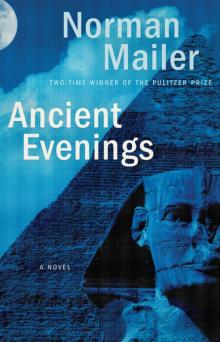 Ancient Evenings
Ancient Evenings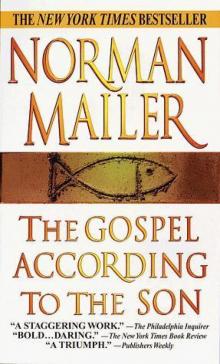 The Gospel According to the Son
The Gospel According to the Son Oswald's Tale: An American Mystery
Oswald's Tale: An American Mystery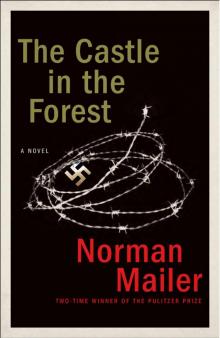 The Castle in the Forest
The Castle in the Forest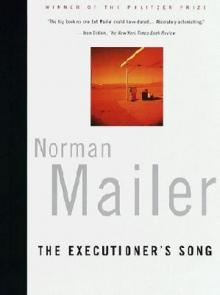 The Executioner's Song
The Executioner's Song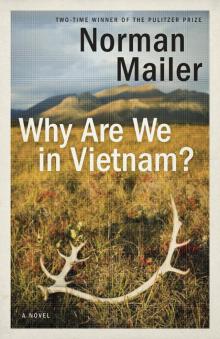 Why Are We in Vietnam?
Why Are We in Vietnam?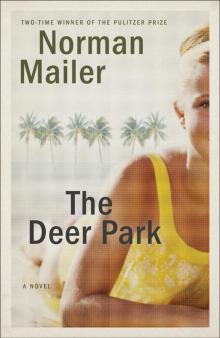 The Deer Park: A Play
The Deer Park: A Play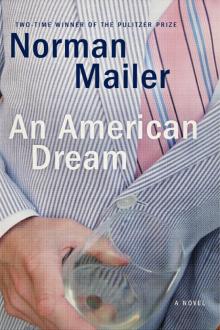 An American Dream
An American Dream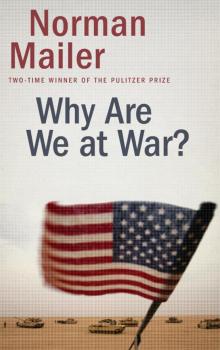 Why Are We at War?
Why Are We at War?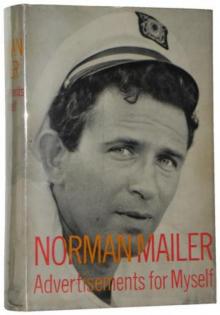 The Time of Her Time
The Time of Her Time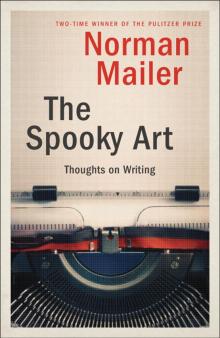 The Spooky Art: Thoughts on Writing
The Spooky Art: Thoughts on Writing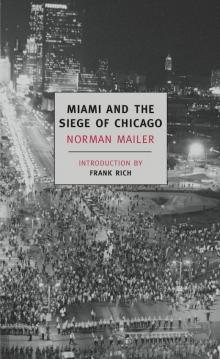 Miami and the Siege of Chicago
Miami and the Siege of Chicago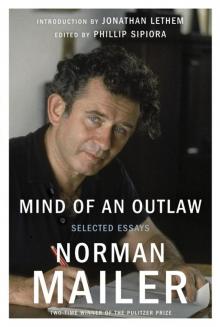 Mind of an Outlaw: Selected Essays
Mind of an Outlaw: Selected Essays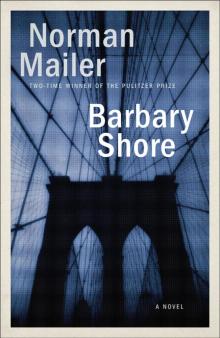 Barbary Shore
Barbary Shore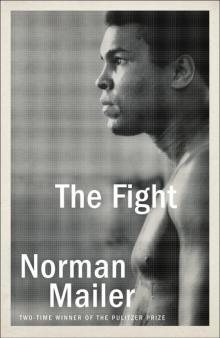 The Fight
The Fight Harlot's Ghost
Harlot's Ghost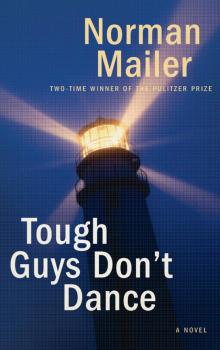 Tough Guys Don't Dance
Tough Guys Don't Dance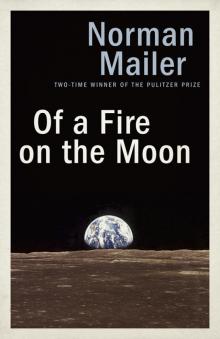 Of a Fire on the Moon
Of a Fire on the Moon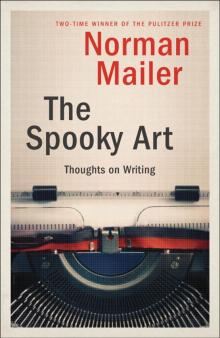 The Spooky Art
The Spooky Art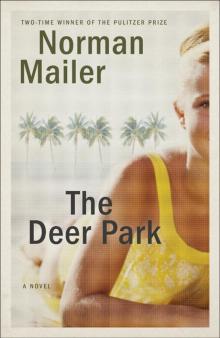 The Deer Park
The Deer Park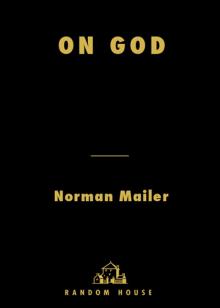 On God: An Uncommon Conversation
On God: An Uncommon Conversation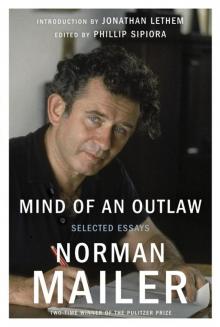 Mind of an Outlaw
Mind of an Outlaw Oswald's Tale
Oswald's Tale